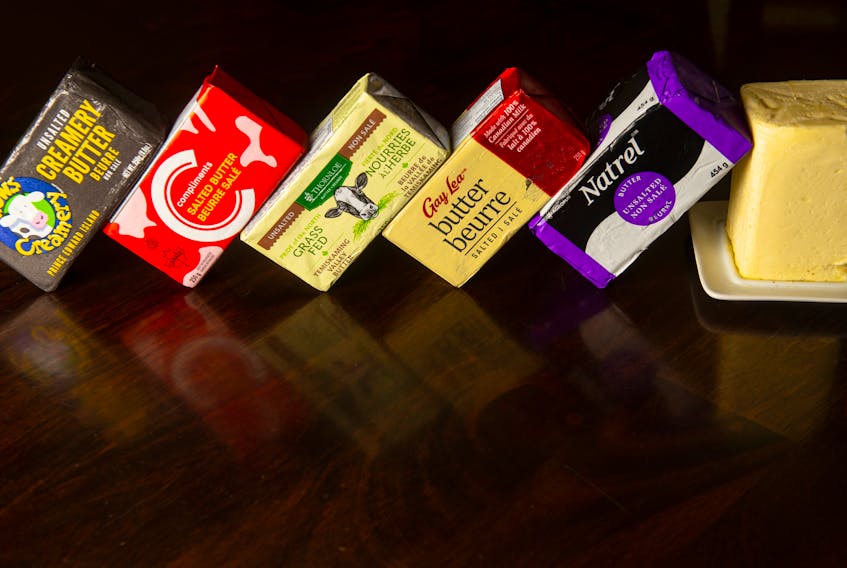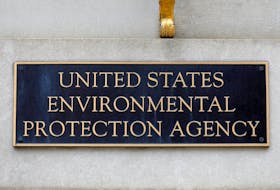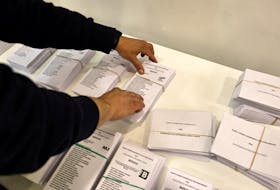In light of concerns expressed by consumers and food researchers over the use of palm oil additives in cow feed, a dairy producers' lobbying group is asking dairy farmers to consider alternatives to the practice until it investigates the matter — now dubbed “buttergate” — further.
In a statement released Thursday, Dairy Farmers of Canada asked dairy farmers to “consider alternatives to palm supplements” while a working group of experts “assess current scientific literature, identify gaps in information and look into issues that have been raised by consumers.”
Dairy Farmers of Nova Scotia chairman and DFC member Gerrit Damsteegt said the dairy industry has chosen to advise against the use of palm supplements until it takes a “serious” and “objective” look into whether the practice poses a health and safety concern or is the cause of perceived changes to the consistency of Canadian butter products.
“It is very sad that certain individuals are making statements that are not based on fact, but on assumptions, and because of that we want to maintain the confidence of consumers and for this very reason, we’ve asked producers to do this,” he said.

DFC’s move to strike a working group to study the issue of "fat supplementation in the dairy sector” comes after consumers and food researchers in Canada have been asking the question of why their butter seems so hard as of late and whether dairy farmers giving palm oil or its derivatives to cows is to blame.
Sylvain Charlebois, senior director of the Agri-Food Analytics Lab Faculty of Agriculture at Dalhousie University, is one such food researcher who sparked the discussion. He pointed out that while palmitic acids come at a cost, their use is less expensive than adding cows to dairy farmers’ herds, “which would substantially increase the cost of production.”
According to DFC, the working group will include dairy farmers, processors, as well as internal and external experts. Consumers will also be consulted.
Les Producteurs de lait du Québec, meanwhile, is calling on dairy farmers to stop using products containing palm oil or its derivatives in dairy cattle feed. In a statement released last week, the Quebec dairy farmers’ association said it will monitor the recommendations of the national working group and “make the necessary adjustments.”
Currently, the use of palm supplements is approved by the Canadian Food Inspection Agency.
In his research, Charlebois noted that the practice of giving palm oil to cows has likely been going on for more than a decade, but the practice has become more apparent since August 2020, when butter demand went up suddenly amid the COVID-19 pandemic, forcing the dairy industry to produce more dairy fat.
Dear dairy farmers,
— The Food Professor (@FoodProfessor) February 25, 2021
I've received threats from some dairy farmers, for over 20 years, But this is 2021, enough. I've received one last night, again, and decided to report it. Personal attacks and character assassination are also unacceptable.
Please stop.
And ever since sharing his research, Charlebois said in a tweet he’s been experiencing “intimidation” and “character assassination” from some dairy farmers, while Dalhousie University has received a threat from a dairy board member to pull funding from the school.
“I’ve been experiencing intimidation for well over 20 years now and I’ve never done anything public just because I’ve accepted it and I understand it’s a very emotional for dairy farmers, but now we’re in 2021 and I think it’s just not acceptable anymore,” he said in a recent phone interview.
Charlebois said he decided to report one case in which someone phoned him and said they “knew where I lived” to the police. He noted people online have also mentioned knowing the location of his summer cottage in Quebec.
“Typically when I talk about supply management and the quota system, few people understand, so my comments go in and go away. This time around, it’s very different, because people will understand when your butter destroys your toast in the morning, that’s not normal. And they'll understand that palm oil is bad, too,” said Charlebois.
“And so that’s why I think this is resonating with many people and I think dairy farmers are seeing they’ve lost control of the narrative and typically they don’t.”
Charlebois said further research into palm supplements is a "step in the right direction."
According to Damsteegt, “only a percentage of dairy producers” are using palm fat and its use having an impact on the hardness of butter or the taste of cheese are “assumptions, they’re not based on any facts.”
“Maybe if it is the case, and this is a big if, if it is the case, there might be other reasons for it. We don’t know. That’s why we put this working group together and we want to get to the bottom of it,” said Damsteegt.









